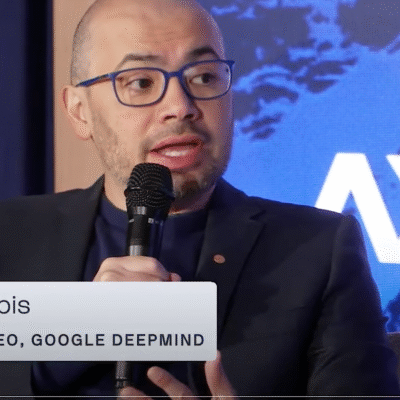As technology becomes a central part of how we communicate, learn, and interact with the world, many students in many regions still lack the digital skills needed to unlock their full potential.
Bridging this digital divide not only offers a concrete path toward economic prosperity but also is foundational to the global development of ethical AI. Bias in AI can lead to unfair outcomes, perpetuate inequalities and reinforce existing stereotypes.
These biases may derive from the data used to train AI models, a lack of diversity among developers and assumptions embedded in algorithms.
Digital literacy in the context of AI goes beyond understanding how to use technology – it also requires being able to engage with the underlying models, data collection and use, and understanding how algorithms make decisions.
As my good friend and colleague Reggie Townsend, Vice President of SAS’ Data Ethics Practice, succinctly put it, “… the risk of perpetuating and exacerbating social inequity is highly probable absent those with lived experiences capable of informing development.”
SAS is committed to boosting digital literacy globally, helping to address immediate quality-of-life challenges and equipping the workforce of tomorrow with the needed know-how.
As 2024 comes to a close, I’d like to spotlight some of the outstanding projects we’ve supported around the globe to equip youth with advanced digital skills:
Creating future leaders through practical learning
The Commercial International Bank (CIB) Egypt Internship Program is fostering the next generation of leaders in the financial and digital sectors by combining theoretical learning with hands-on experience.
Through this program, the CIB interns gained access to SAS content and tools, allowing them to apply data analytics skills directly to real-world projects. The program has seen impressive results, with more than 17,000 students completing the curriculum and earning more than 22,000 digital SAS Badges to showcase their expertise.
Developing a workforce in underserved regions
In Africa, innovative training models are bridging the gap between education and employment. In collaboration with MTN, Africa’s largest mobile network operator, 100 graduates across 12 operating countries were trained. By employing local instructors and addressing challenges such as lack of electricity in some instances, this program made education more accessible and culturally relevant.
As a result, 146 SAS Certifications were delivered, with 19 students achieving the challenging SAS Data Science qualification. Also, MTN hired more than 20 students that participated in the program.
As a result of the creative approaches taken in the two above projects, SAS received the 2024 Innovation Award from CEdMA Enterprise. The premier global organization for training executives and professionals, this award highlights SAS’ commitment to delivering training in AI, analytics and data science skills to over 18,000 learners in developing African countries.
Making digital education accessible to all
Accessibility is a key challenge in digital education. Initiatives like the sponsorship of the #Coding4Mandela Tournament in South Africa are tackling this head-on. The collaboration between Nelson Mandela University and the Leva Foundation teaches coding without the need for computers, thereby making digital education more accessible.
SAS has shown continued support for the event, reaching thousands of students across South Africa as the key sponsor in 2024. SAS is facilitating ongoing learning through the provision of coding kits and training sessions. The initiative is a tribute to Nelson Mandela’s enduring belief that education can transform lives and shape the future.
Advancing ethical AI education
To help build a more diverse, global AI workforce, SAS partnered with the Commonwealth Secretariat. Through this collaboration, SAS donated $10 million worth of software, computing capacity and training to the Commonwealth Secretariat’s Commonwealth AI Consortium (CAI). This initiative aims to help higher education students learn how to use AI responsibly.
Bridging this digital divide not only offers a concrete path toward economic prosperity but also is foundational to the global development of ethical AI.
This collaboration will initially focus on the Caribbean and then expand to other Commonwealth countries to train 10,000 students and educators over five years. Students are also encouraged to gain hands-on experience applying their newly developed analytics skills by participating in the SAS Curiosity Cup and the SAS Hackathon.
Shaping a brighter future through digital skills
Empowering communities with digital literacy isn’t just about teaching skills – it’s about opening doors to opportunities, fostering innovation and building a more equitable future. Whether it’s training future leaders in Egypt, overcoming challenges to develop talent in Africa or advancing ethical AI education globally, these initiatives shape a generation ready to thrive in a digital world.
The impact of these efforts is clear: lives are being transformed, economies are being strengthened, and the foundation for a more inclusive global workforce is being laid. By continuing to invest in education and partnerships, we can ensure that no one is left behind in the digital age. Together, we’re not just bridging the digital divide – we’re paving the way for a brighter future for all.





